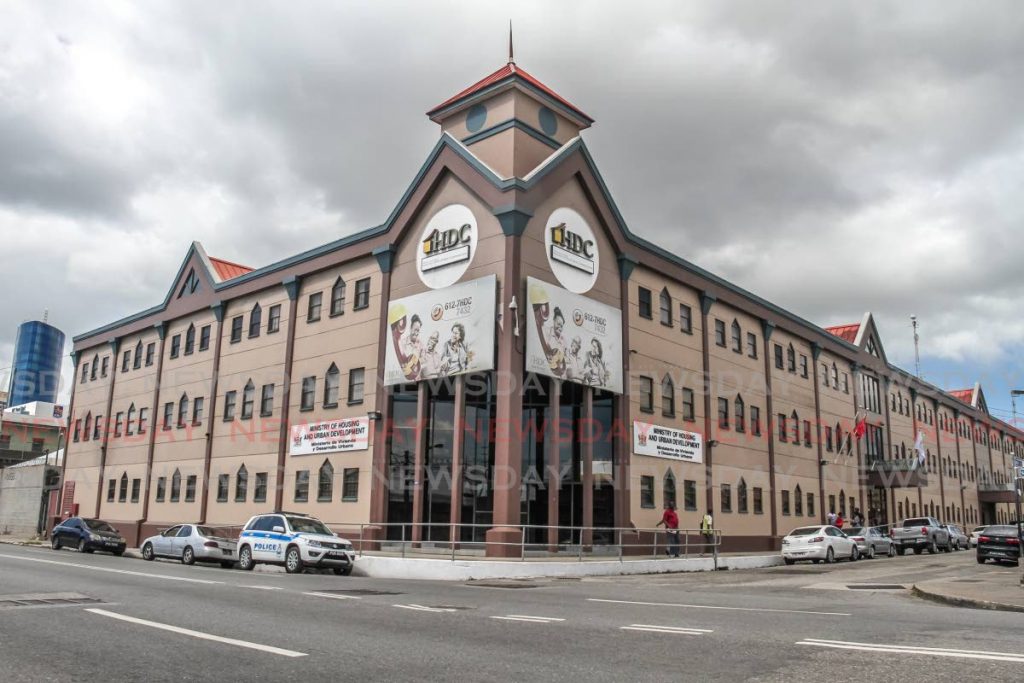Government seeks partners to build 200,000 housing units

THE Housing Development Corporation (HDC) is inviting private finance and construction expertise to partner with it to build housing units to address the current demand of almost 200,000 housing units registered at the HDC.
HDC managing director Jayselle Mc Farlane revealed this at a seminar on Wednesday at Government Campus Plaza, Port of Spain.
The HDC hosted financiers, builders and developers, with the aim of forming public-private partnerships (PPP) – at the event, titled The Future of Housing: Leveraging Partnerships, Building Ownership.
Mc Farlane said the HDC could not satisfy demand, amid an ever-widening gap between supply and demand.
"At the last count the HDC had approximately 200,000 applications for housing on its live database."
The demand included single-family dwelling-houses, apartments/condominiums and rent-to-own and licence-to-occupy arrangements at the lower end of the economic scale.
Demand arose throughout TT, she said, but 65 per cent of demand lay in five areas – Tunapuna/Piarco, Chaguanas, San Fernando, Arima and Diego Martin.
Some 75 per cent of HDC applicants were aged 26-55, while 23 per cent were below 35.
"The simple point being made here is that there is an almost inexhaustible demand for government housing which the HDC on its own cannot satisfy.
"We are therefore seeking innovative ways to satisfy this demand by building more strategic partnerships with the business community."
Mc Farlane said the HDC might be able to supply or buy land for its private-builder partners.
"There is a huge market for housing solutions into which your organisations can easily tap.
"Today the HDC is offering you the potential to partner with us to provide 196,592 housing solutions, and in doing so, leave a legacy, both in terms of your corporate social responsibility, but more so in terms of your faith in the people of Trinidad and Tobago."
Planning Minister Pennelope Beckles touted the benefits new housing could bring.
"Housing is a valuable element of economic, social and civic development. While housing investment is a major economic driver globally and here in TT, the relationship between housing-related activities and the achievement of broader socio-economic development goals cannot be understated.
"The construction and usage of suitable housing boosts economic development through its impact on employment, savings, investment, and labour productivity."
Beckles spoke of new, relaxed town planning standards in Port of Spain's key suburbs, which facilitated residential and commercial development. The new measures included higher bedroom densities, smaller lot sizes, greater allowances for building heights and the number of floors, increased maximum building coverage for high-density residential areas and bigger floor area ratios.
"Site coverage, which determines the maximum area of a site which may be covered by a building, together with all other paved surfaces, is also being addressed for proper landscaping, as well as adequate natural drainage, which helps to mitigate flooding, among other public safety issues."
Beckles hinted at a quicker, smoother planning application process, via an automated construction-permit system in the Town and Country Planning Division's north, south, east and Tobago offices, and all 14 municipal corporations.
Minister in the Ministry of Housing Adrian Leonce said, "I can state quite categorically that the HDC is in no position, now or ever, to satisfy this already burgeoning demand, which shows no sign of decreasing in the near future."
Pointing to $5.3 billion saved in private banks, or $7 billion in banks and credit unions, Leonce said, "Not only is the (housing) demand there, but the money to satisfy that demand is also available, if you are willing to invest."
He said constructing 190,000 housing units was a social investment.
Leonce said in the UK, entities known as for-profit registered providers (FPRPs) – also called housing associations – might be able to commit £23 billion for affordable homes by 2026, to fund construction of 130,000 new homes.
He urged those present to keep faith with TT, and to step outside their comfort zone to use the people's resources, invested in participants' institutions, for the common good.
"The common good includes everyone but especially those in situations of greater vulnerability and risk.
"Nowhere is that risk and vulnerability more present than in the inadequacy of housing solutions for our people."
HDC division managers gave more details.
Manager of projects Vidale Ramroopsingh said a developer who could finance, construct and sell housing units for the HDC could enjoy construction incentives respectively of $75,000 for a unit costing up to $550,000, and $100,000 for units of $550,000-$750,000. Participants also heard of tax exemptions on the gains and profits from the initial sale of units.
Manager of procurement Vaughn Rondon envisaged 10,000 units being built at a cost of $9 billion.
Manager of construction management and operations Romel Ramarack said the Government has mandated the HDC to get 25,000 housing units over ten years, remarking, "It's aggressive."


Comments
"Government seeks partners to build 200,000 housing units"